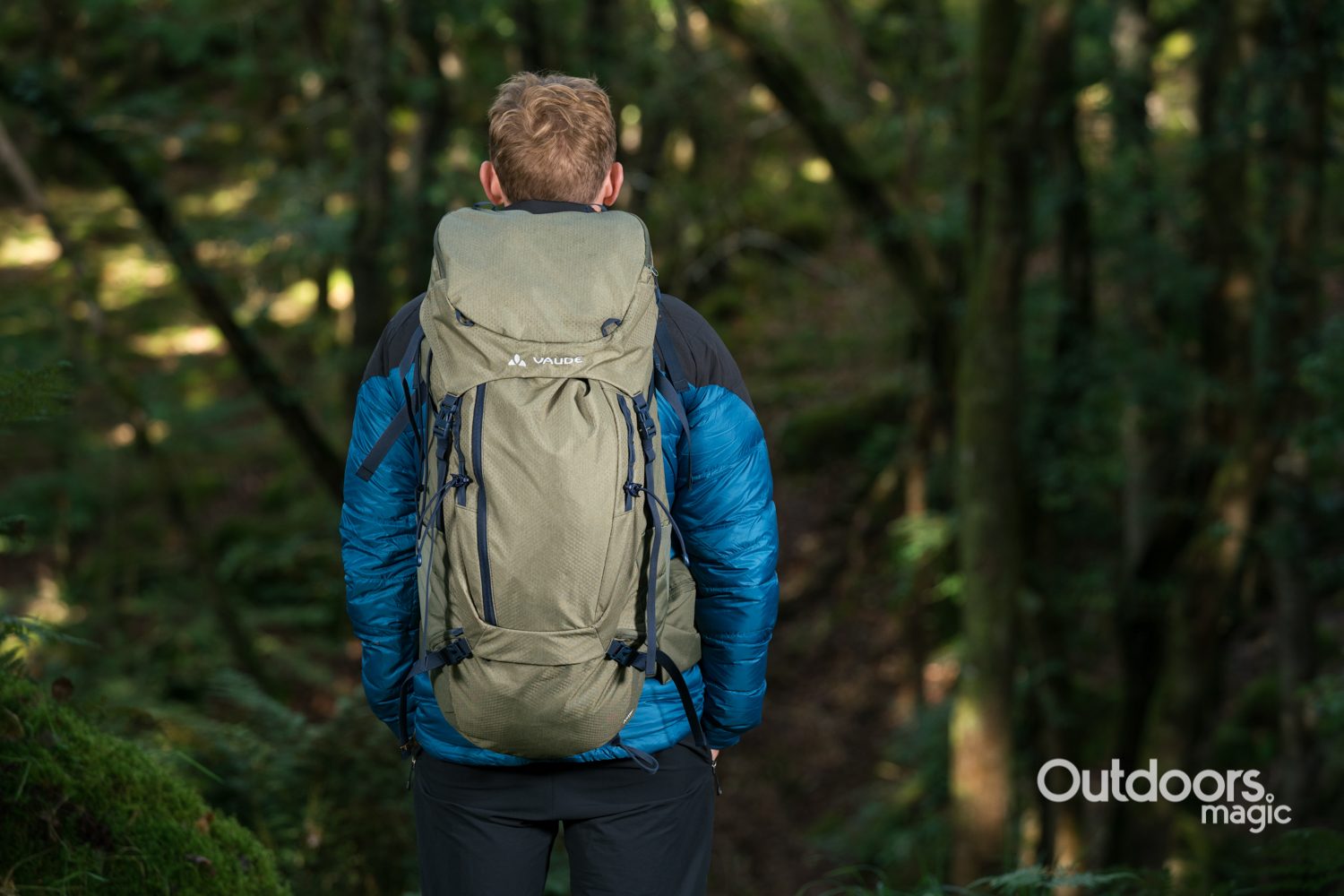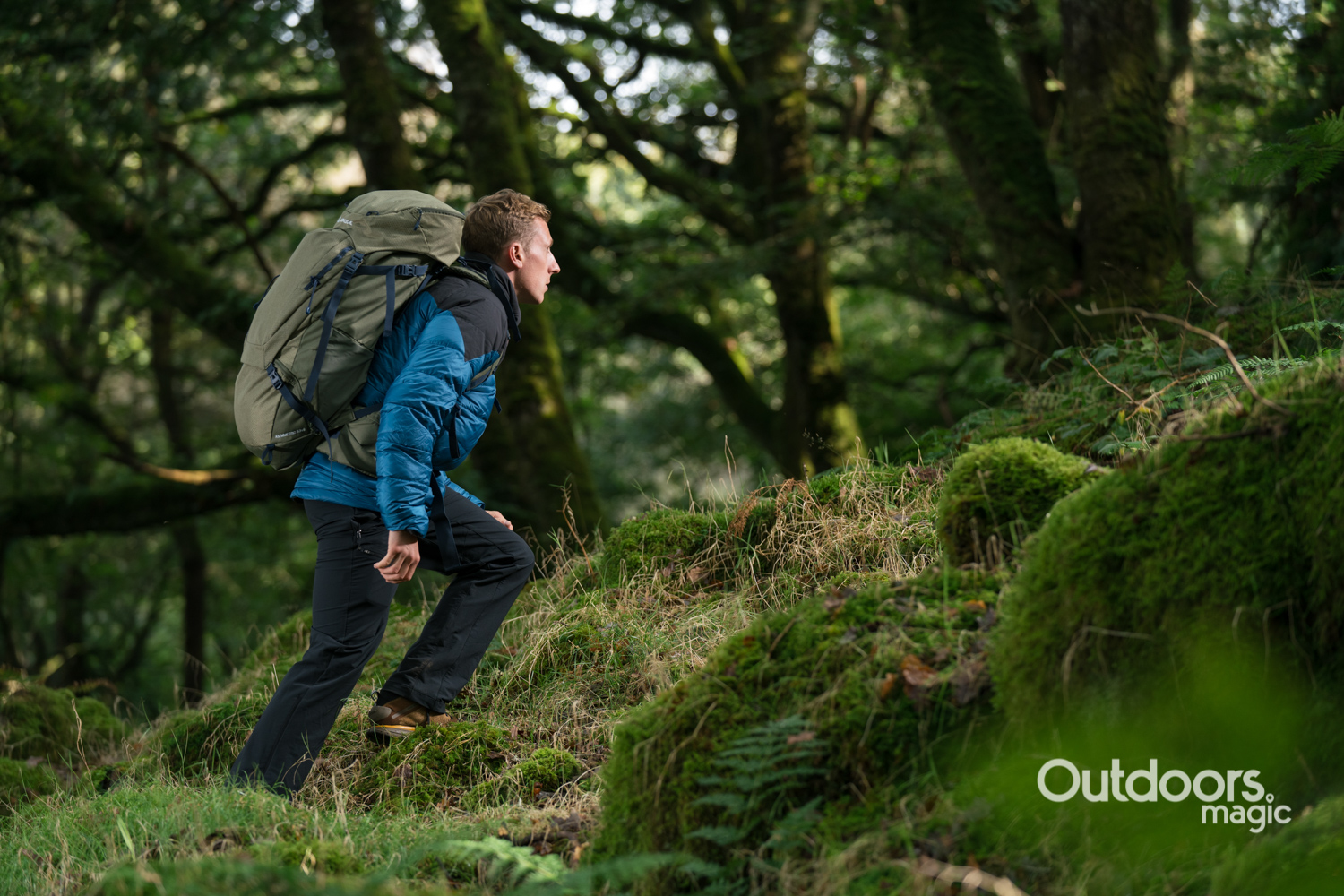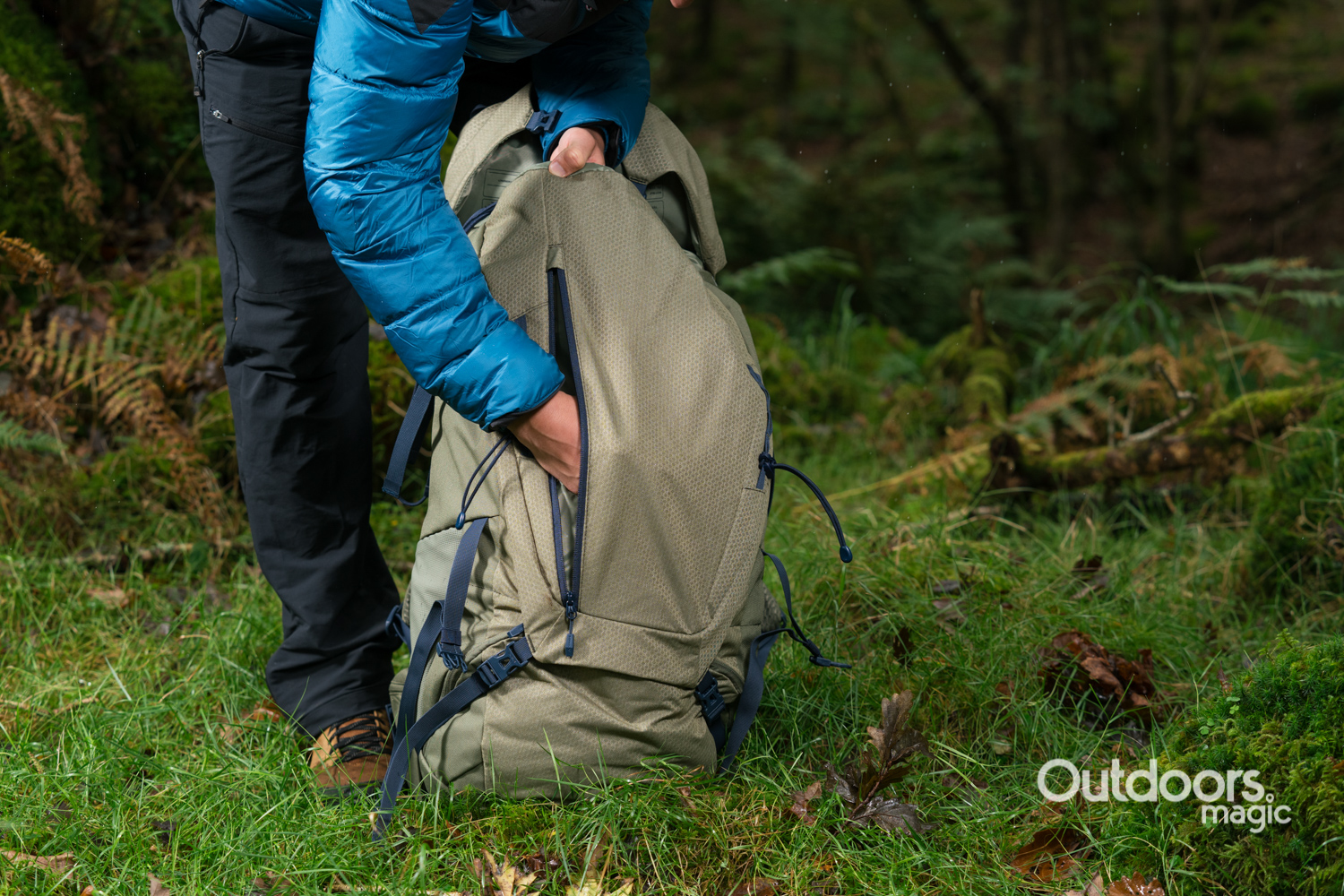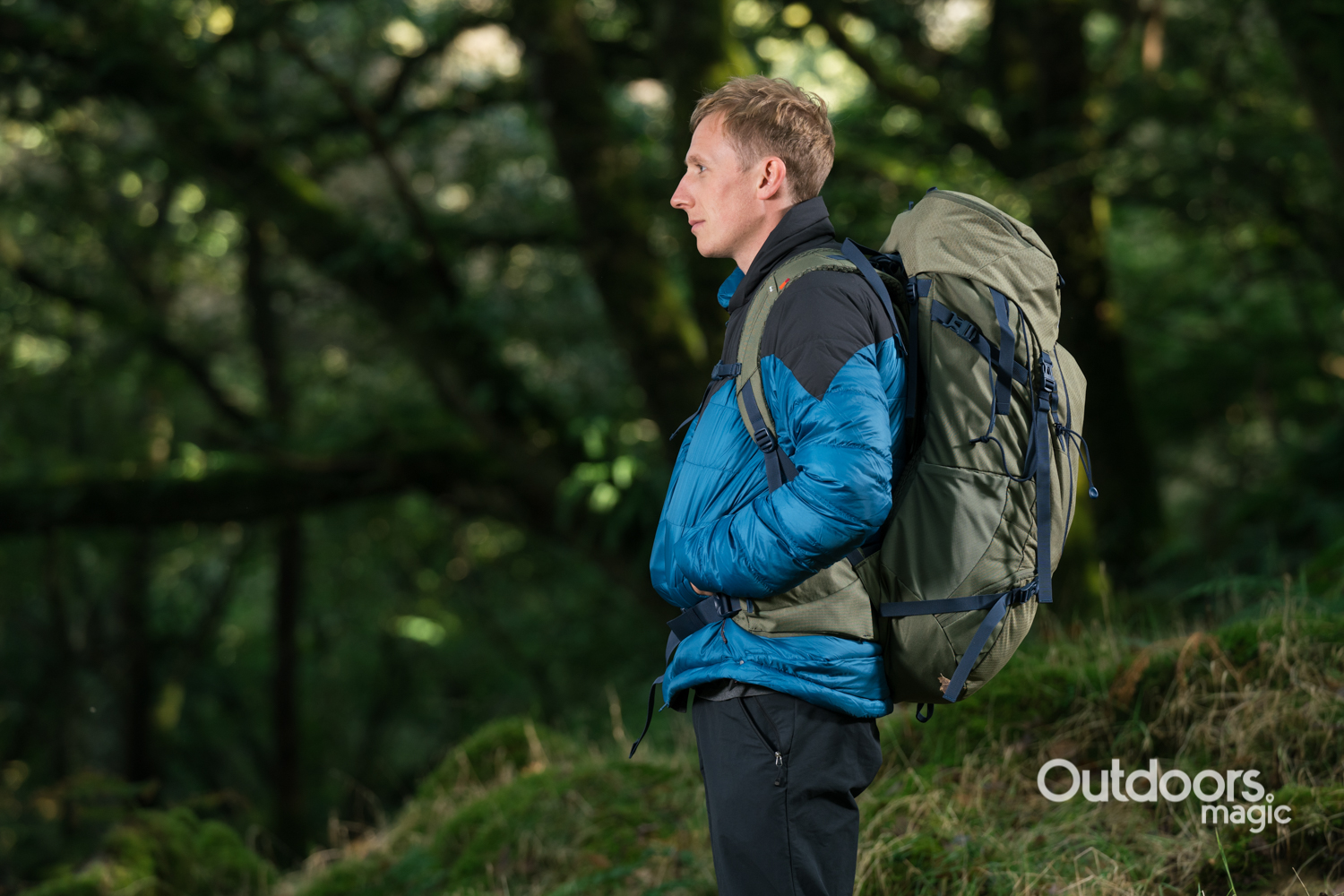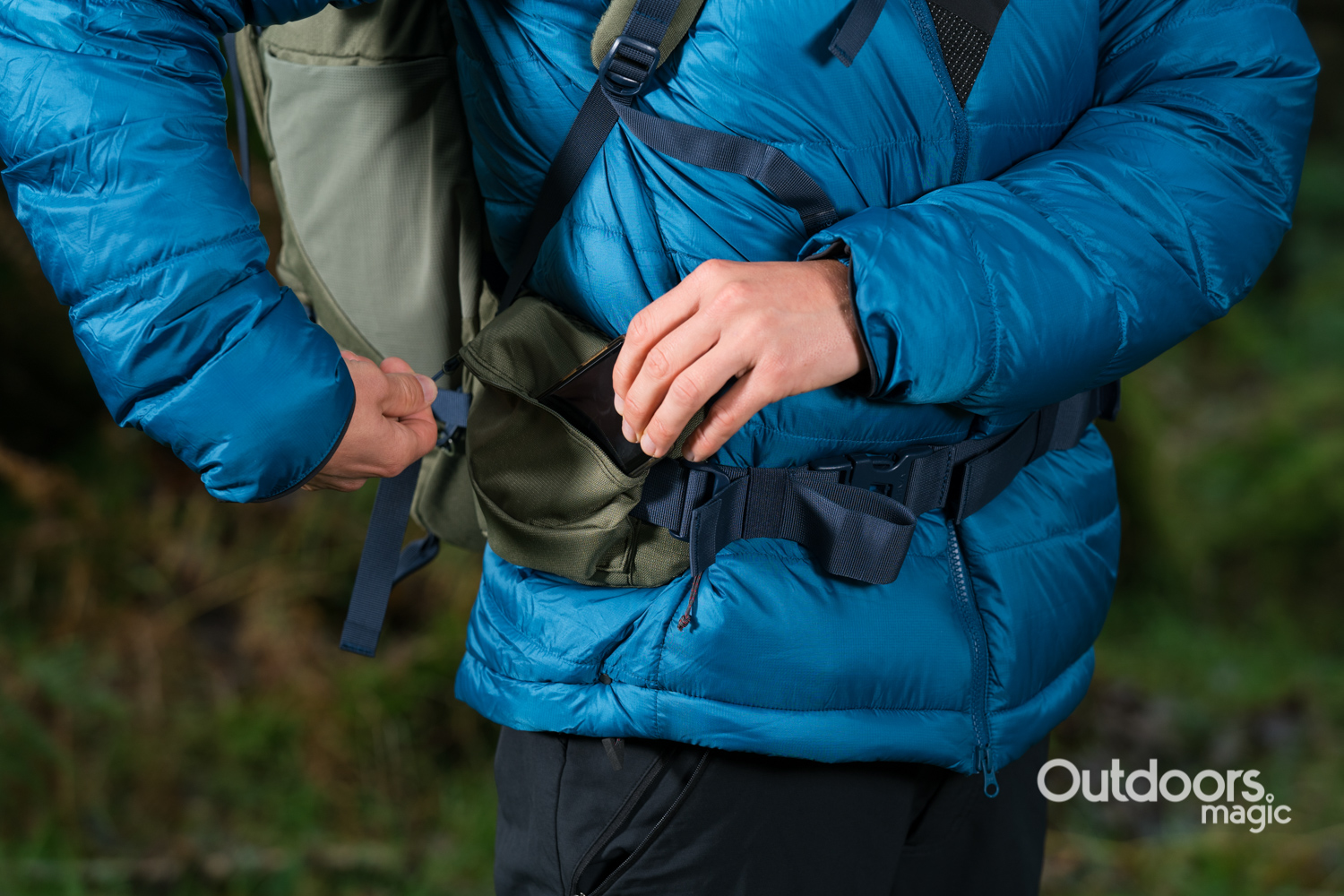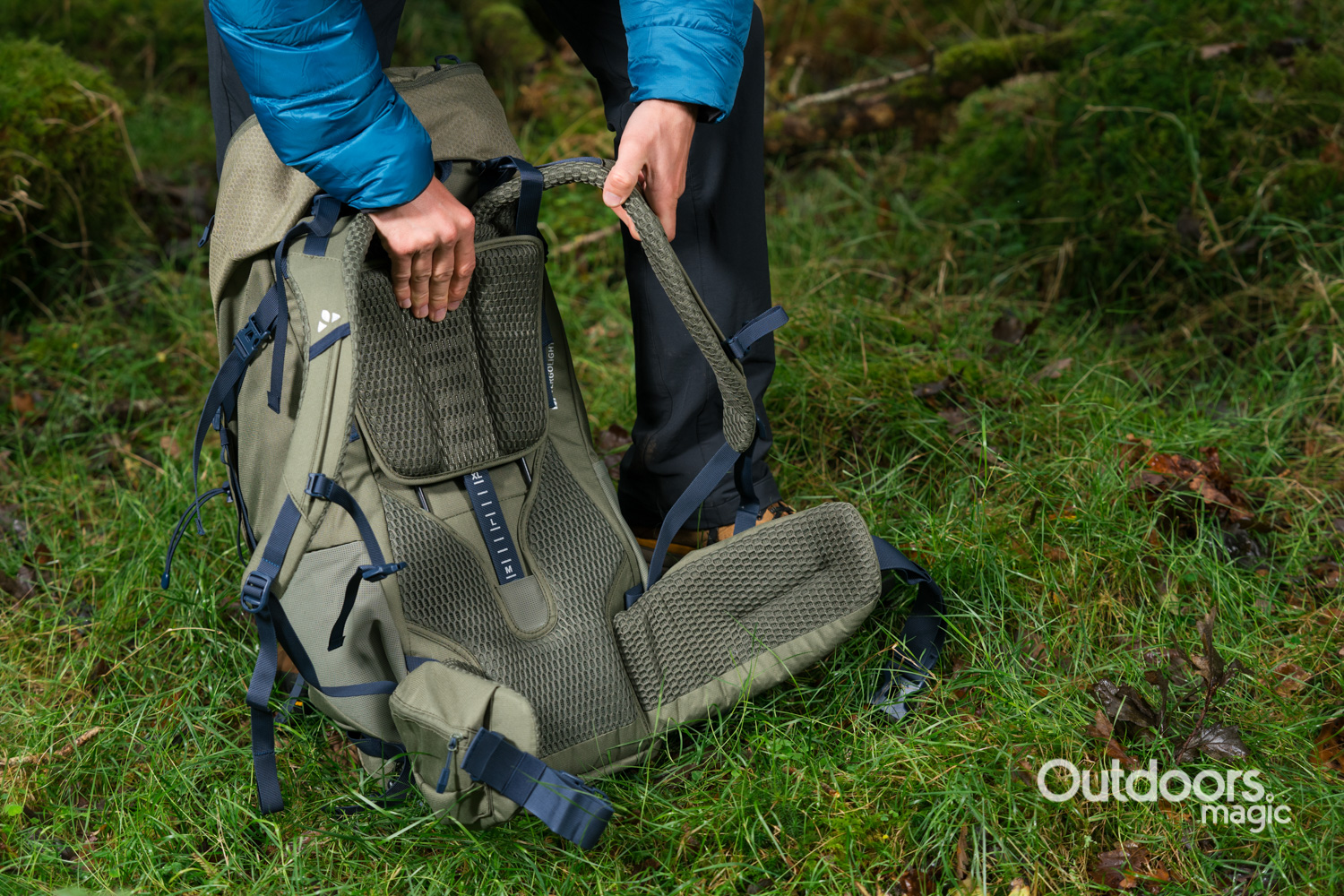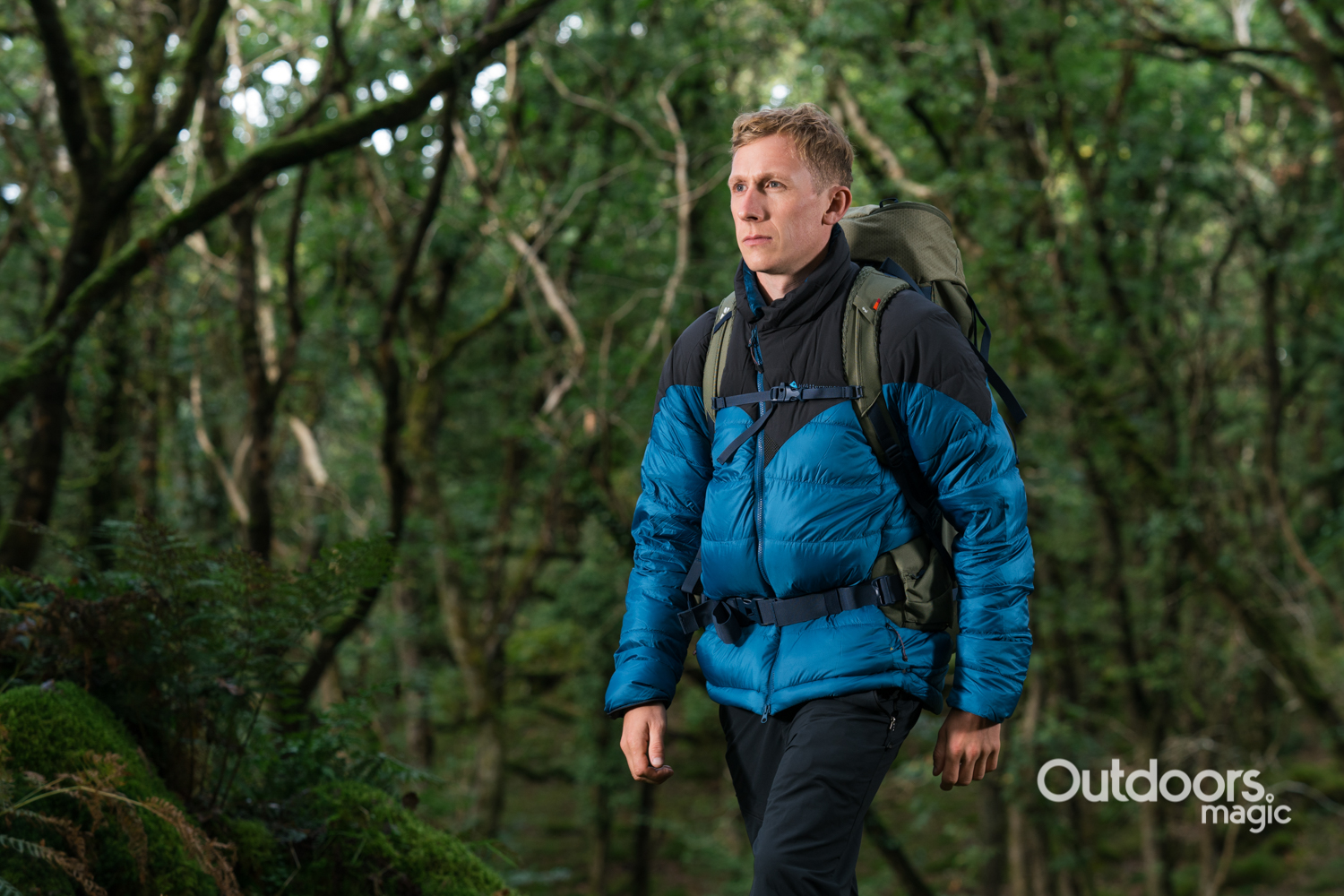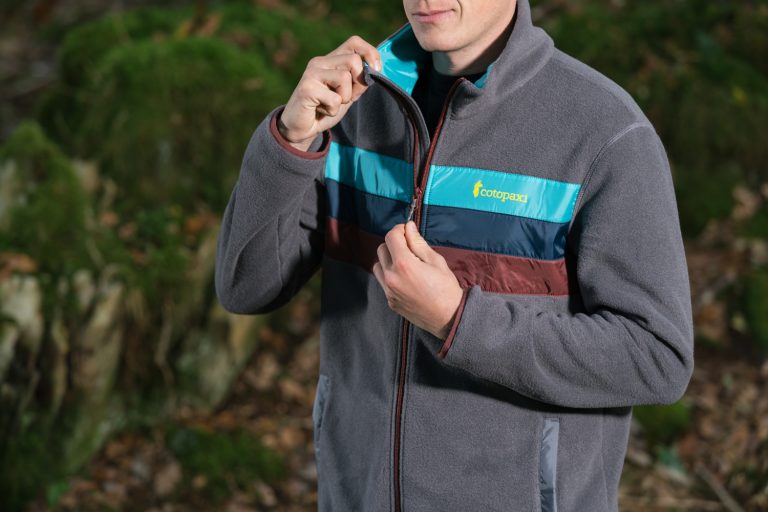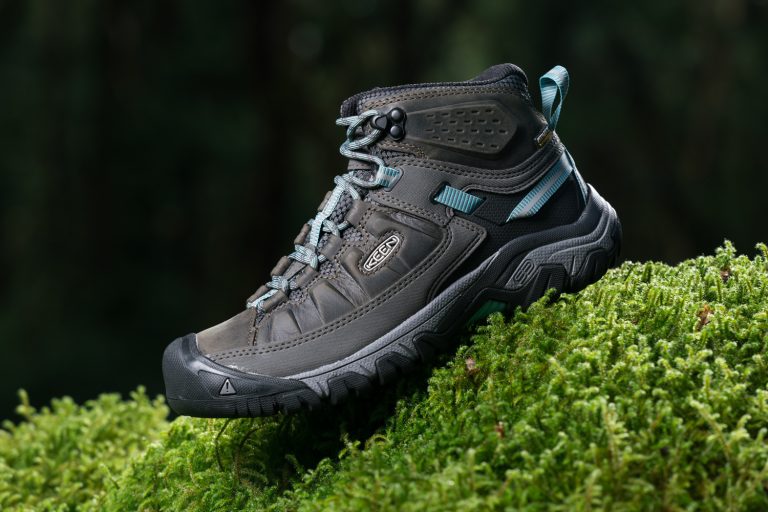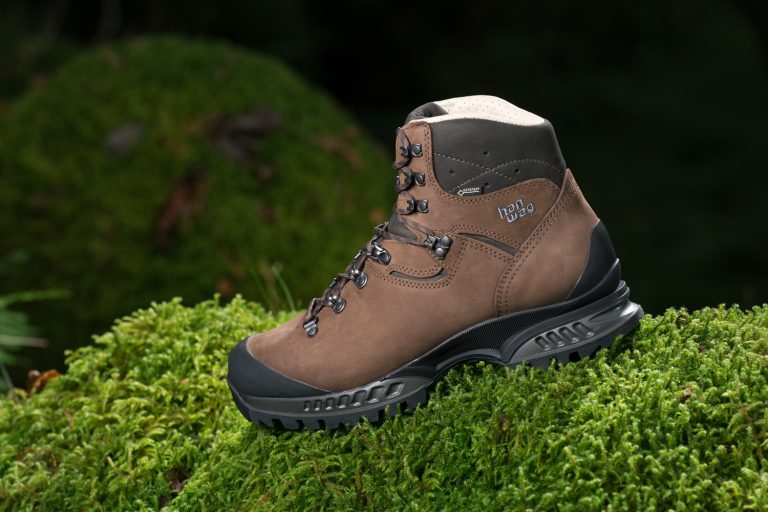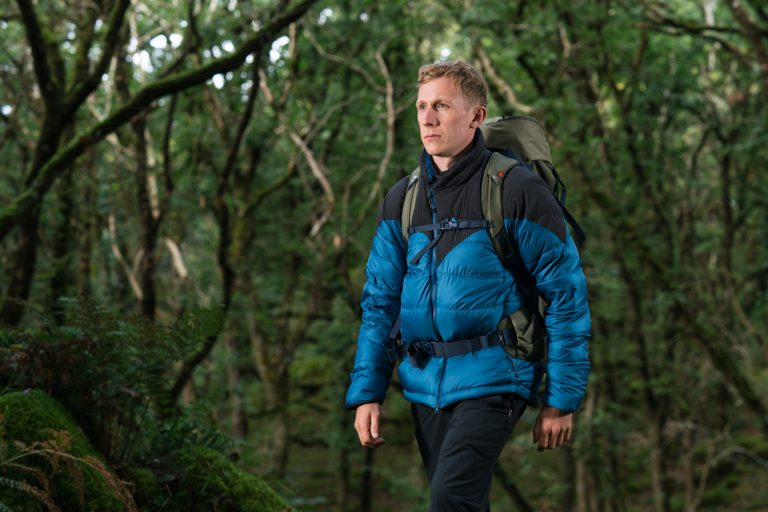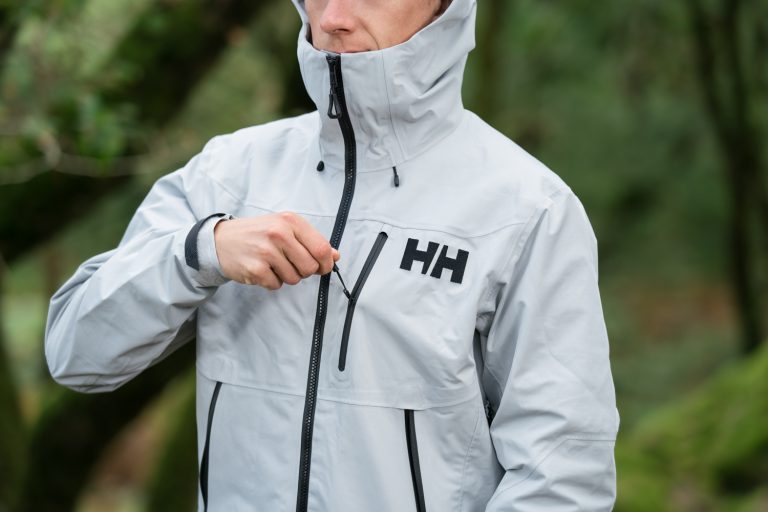Why We Chose It: Eco-friendly materials, comfortable back system
Price: £160
Weight: 1.60kg
Over the last few years, the sustainability drive that Vaude have embarked on has made them one of the greenest companies in the industry. Back in 2018 they were one of the first outdoor brands to get rid of PFCs from all of their apparel and they also pledged that by 2020 the rest of their products would come without them. Not only have they succeeded in that, but they’ve now made a big push into using recycled materials. Case in point: the Vaude Assymetric backpack.
What’s The Vaude Assymetric Best Suited To?
Available in men’s 52-60 litre and 42-50 litres capacities and women’s 38-46 and 48-56 litre capacities, the Assymetric collection consists of packs that are going to be best suited to summer overnight adventures. I’ve found the 52-60 has more than enough capacity for weekend wild camps and I can see it easily accommodating all the kit and supplies that I’d take on a summer long-distance walk. For winter trips, where technical equipment is required it’ll be a little on the small side.
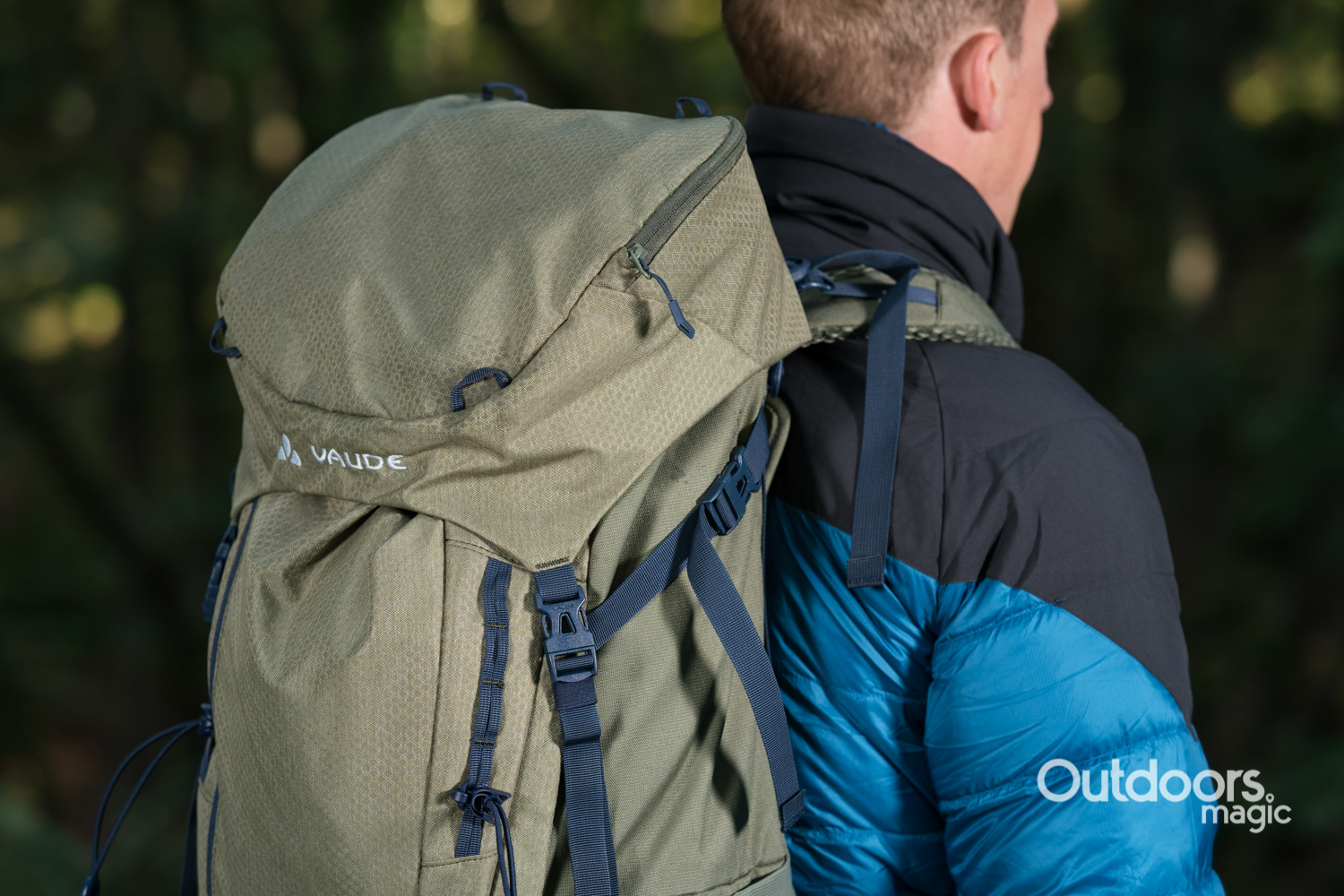
The Eco Credentials
As I’ve already touched upon, the durable water repellent treatment Vaude have used on this is completely free of those eco-hazardous PFCs often used in backpack fabrics. On top of that, a large proportion of the pack is made from recycled plastic bottles. The second face fabric, for instance, is made from 50% recycled polyester and then there’s a recycled PU coating featured throughout. These materials all feel quite light but they’re still durable enough for the demands of life on the trail.
Performance
The back system is fairly basic but I’ve still found it to be comfortable, distributing weight well and allowing a bit of ventilation. A webbing strap lets you adjust the back length quickly and easily.
The frame is tennis racquet shaped – wider at the top of the pack and narrow at the bottom – to channel weight from the shoulders down to the hips and it can actually be removed if you’re being really strict with your gram count, bringing the pack’s weight down from 1600g to about 1300g – firmly in ultralight territory then.

